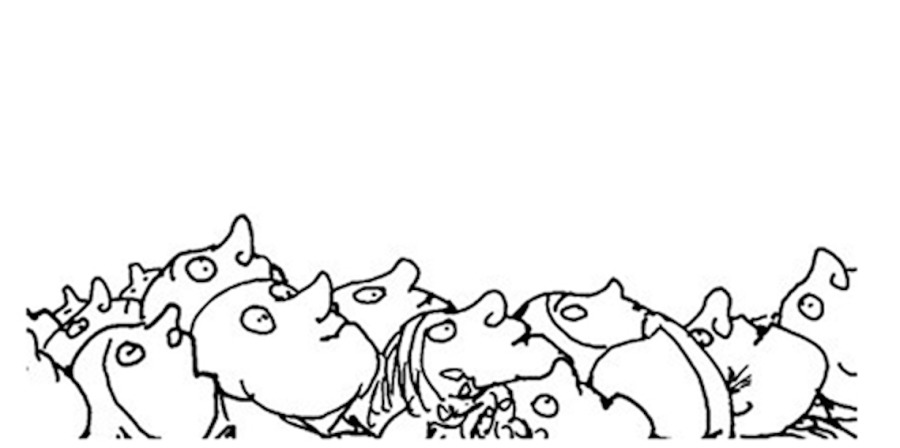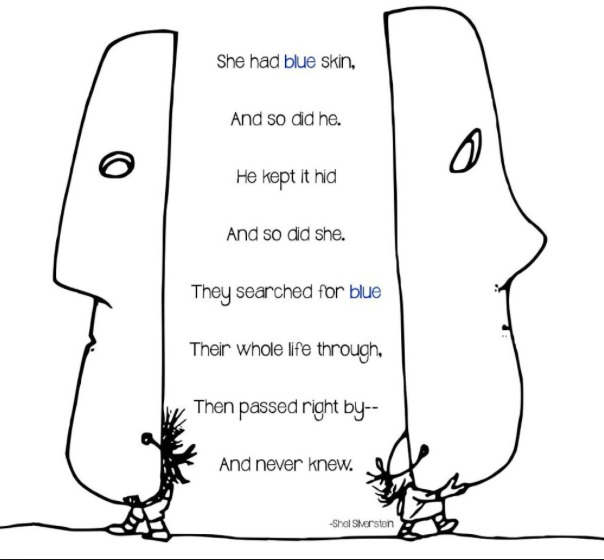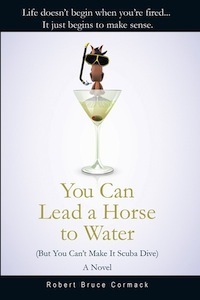Are You Going Up While Others Are Coming Down?
The silly, goofy way we have of bouncing through life, waiting for our ship to come in, falling into lagoons instead.

“I’m just a lucky slob from Ohio who happened to be in the right place at the right time.” Clark Gable
Wisdom is great if you like wisdom — especially old wisdom. The Tao has always fascinated me. I figure anything that’s lasted longer than Seinfeld reruns has to be good. Actually, the Tao has been around longer than The Bible, so that’s more than Seinfeld, Cheers and Oprah combined.
Lao Tzu, the philosopher credited with the Tao, had a thing about cogs. These are gears to those not familiar with cogs. Frankly, I didn’t even realize cogs had been invented back then, but you know those Chinese. Just when you think they couldn’t do any better than fireworks, they create cogs.
“The day my ship came in,” Rodney Dangerfield once said, “I was at the airport.”
Anyway, Lao Tzu figured life is like a series of cogs. When things are good, they’re engaged. If things are bad, they don’t connect. Not connecting was known in ancient China as having a “crappy day.”
We’ve all had crappy days. Who knew it was a mechanical issue? And obviously some people have more mechanical issues than others. As much as we want something, life’s natural order doesn’t always include us. “The day my ship came in,” Rodney Dangerfield once said, “I was at the airport.”
Clark Cable admitted he was lucky as hell. There were many actors more talented than him. He couldn’t dance, he couldn’t sing. His gift was having cogs that seemed to be engaged all the time. As he was the first to admit, “People come to see me because I know life is great and they know I know it.” Based on that, we’d all do better whistling a lot.
Gable figured he was in the right place at the right time. Steve Jobs and Steve Wozniak felt the same way. “We were around when the greatest invention on earth came along,” Jobs said. “How lucky is that?” They were also around during The Cuban Missile Crisis. How lucky was that?
Some people are obviously the products of time and place. Take Tiny Tim, for instance. No other era would have allowed a warbling ukulele player with long hair to take the stage. It had to be the 60s and, possibly, someone who could tolerate warbling like Ed Sullivan.
I’m sure we couldn’t butcher “Tiptoe Through the Tulips” any more than Tiny Tim did.
So if life is all about timing, do we really have control? Think of the term “As luck would have it.” Is luck really deciding who gets what? And why give it to a tone-deaf actor and a singer who warbles?
Why not give it to someone like us? We’re tone-deaf and warble. We can probably play the ukulele. too. If auto-tone can make Madonna sound like a singer, I’m sure we couldn’t butcher “Tiptoe Through the Tulips” any more than Tiny Tim did.
On the other hand, what we think is bad luck might actually be good luck. Alfred Hitchcock said “I’m fortunate to be a coward, to have a low threshold of fear, because a hero couldn’t make a good suspense film.”
Children’s book author Shel Silverstein saw timing as gravity. In his poem, “Trampoline,” he draws the analogy of two people continually missing each other in mid air: “One was always goin’ up, while the other is comin’ down.”
It’s similar to what Lao Tzu was saying. Cogs and trampolines are like the whole cosmic setup of life. Time and place are important, but so’s coincidence. You can’t be in the wrong century, for instance. If Jobs and Wozniak had lived in 1728, an apple would have been an apple.
We post pictures on Facebook, then get mad when someone says our dog isn’t a “cutie.”
As luck would have it, they were coming up with the Mac when people were coming down with a bad case of forgetfulness. The Mac solved information storage in a very compact way. With the advent of the laptop, you could sit at Starbucks and look like a writer. If you got frustrated, you could toss your laptop in the garbage and really look like a writer. As Wozniak explained: “Never trust a computer you can’t throw out the window.”
Lao Tzu wanted people to be mindful of expended energy. Silverstein figured we should stop bouncing. Yet that old saying “All things come to those wait” just isn’t our way of doing things. We’d rather bounce than be mindful.
We join dating sites that look like Cosco flyers. We buy stuff on line, find it’s the wrong size, then list it on Buy and Sell. We post pictures on Facebook, then get mad when someone says our dog isn’t a “cutie.”
Our whole chemical make-up seems to be geared to bouncing and letting our cogs spin like crazy whirligigs. The only reason computers have so much memory today is because our own memories suck. We can’t remember if we have a “cutie” dog or not. If Benji takes off on a walkabout, we have to go on Facebook to get an accurate description of our own dog.
Lucky people see opportunity. They look at the bigger picture and become art enthusiasts.
Richard Wiseman, a psychologist, wrote in The Telegram about his study of lucky and unlucky people. Lucky people see opportunity. They look at the bigger picture and become art enthusiasts. Unlucky people stare at their televisions. Eventually the reruns turn them into warbling idiots like Tiny Tim. They miss opportunities for the same reason Tiny Tim did. He irritated the hell out of us. Unlucky people irritate the hell out of us, too, mostly because we can’t believe they’re still watching Gilligan’s Island.
Wiseman even created the “lucky school” where unlucky people are taught to think like lucky people. This essentially consisted of turning off the television and shoving them outside. Some came back as art enthusiasts, others at least realized Bob Denver wasn’t handsome.
Lucky people at least realize they might be the ones onto something, which is better than those watching Gilligan’s Island.
The takeaway is that our cogs will connect and disconnect whether we’re lucky or not. Everyone has good and bad days, which is why we should make the most of our bouncing — even if we end up warbling like Tiny Tim.
Luck and timing are more or less self-imposed. Too often we don’t go further than we absolutely have to. Our lives follow the same bounce. We think what others think, believing they must be onto something.
Lucky people at least realize they might be the ones onto something, which is better than those watching Gilligan’s Island. It was a desert island, afterall, and not that much fun after your hundredth coconut.
We have to get out of our bounce trajectory. Try bouncing somewhere else. Meet new people. If someone’s going up while you’re going down, look at it from a lucky person’s perspective: At least you waved along the way.
My favourite Silverstein poem — possibly my favourite poem, period — describes two people who pass right by each other, despite being so well matched. As Wiseman noted in his study, “Unlucky people stare at one page whereas lucky people flip through finding new possibilities.”

We either learn to be like the professor on Gilligan’s Island, always looking for a way off the island, or like Gilligan who inevitably falls into the lagoon. It maybe funny, but it’s still a lagoon.
Robert Cormack is a freelance copywriter, novelist and blogger. His first novel “You Can Lead a Horse to Water (But You Can’t Make It Scuba Dive)”is available online and at most major bookstores. Check out Yucca Publishing or Skyhorse Press for more details.

"""
Articles from Robert Cormack
View blog
Without selling yourself short. · “We marry, have kids, do our jobs, provide food, education. Job do ...

In honour of Women's Day, let's see which is more offensive. · “Life is tough, darling, and we’d bet ...

Fuck. · “I thought about reading a poem by Shakespeare, but then I thought, why should I? He never r ...
You may be interested in these jobs
-
Roll Forming Machine Operator
Found in: Talent CA C2 - 3 weeks ago
Equation Staffing Solutions Calgary, Canada Full timeOur client located in the heart of Calgary's SE industrial sector is looking for an experienced Machine Operator to join their team Are you looking to work with a company that values a solid work ethic and provides the opportunity to learn skills in machine operation? If this pos ...
-

Project Manager
Found in: beBee S2 CA - 4 weeks ago
Graham Construction & Engineering Inc. Edmonton, Canada Full timeGraham is an employee-owned construction solutions partner that services the buildings, industrial, infrastructure, water and project finance sectors. We deliver lasting value for our clients through meticulous planning and scheduling, while upholding rigorous safety and quality ...
-
Chef Mécanicien de navire
Found in: Talent CA C2 - 8 hours ago
Oceanex Montreal, Canada Terme, contrat et projetPartagez cet emploi: · Informations sur le poste · Positions disponibles · 1 · Date de clôture · 25 Apr 2024 · Type · Terme, contrat et projet · Emplacement · Montréal QC · Option à distance · Aucun · Description détaillée de l'emploi · À propos de nous · Pièces jointes à ...


Comments